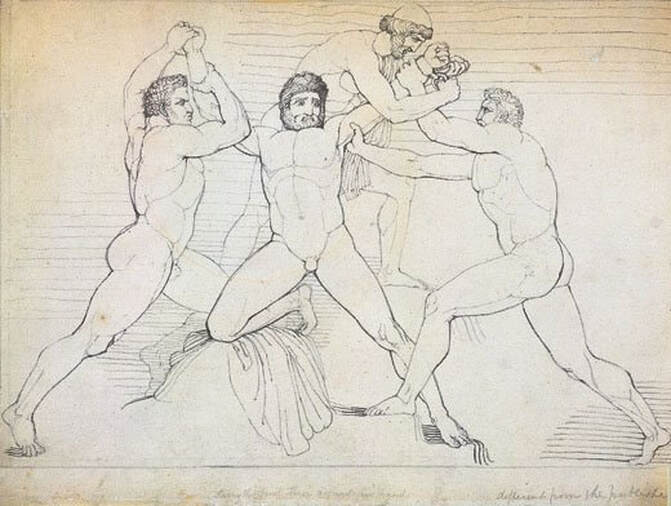KRATOS IN GREEK MYTHOLOGY
Kratos was a minor god of the Greek pantheon, and the personification of strength in Greek mythological tales. Kratos, in Ancient Greece, was seen as one of the winged enforcers of Zeus, though today is most closely associated with the protagonist of the God of War video game series.
Kratos Son of StyxKratos, whose name means strength, was one of the four children of the Titan Pallas and the Oceanid Styx; Kratos’, whose name is also written as Cratos, siblings are Nike (Victory), Bia (Force) and Zelus (Zeal).
Kratos’ home, and those of his siblings, was within the palace of Zeus upon Mount Olympus, for they were an ever-present feature alongside the throne of Zeus. Kratos, and his siblings’ role, within Greek mythology was to enforce the will of Zeus, and were thus perceived as the winged enforcers of the supreme god. Kratos’ arrival upon Mount Olympus coincided with the Titanomachy, the legendary ten-year war of Greek mythology. Kartos’ mother, Styx, answered the call of Zeus for allies to join him, and indeed Styx was said to be the first to join, bringing with her, her children. Zeus had promised all who joined him positions of power, hence Kratos and his siblings’ role which saw them always in close proximity to Zeus. |
|
Kratos and Prometheus Bound
In the surviving sources from antiquity, Kratos is most famous for his appearance in Aeschylus’ Prometheus Bound. In this tale, Kratos forces Hephaestus to chain Prometheus up, even though Hephaestus is perhaps reluctant to do so; this arguably shows the strength that Kratos possessed, forcing one of the Olympian gods to do something.
In Prometheus Bound, Kratos is noted for brutality, inflicting unnecessary wounds without mercy, though whether Kratos’ actions are excessive or a necessary action to ensure that those who transgress are punished fittingly is open to interpretation. Kratos himself simply sees Zeus has having the right to whatever he wants, and Kratos himself just enforces the god’s will.
There is supposition that Kratos, alongside Bia, were also figures within the lost work named Ixion, by Euripides, where Kratos helped to secure Ixion to his fiery wheel of torture.
In Prometheus Bound, Kratos is noted for brutality, inflicting unnecessary wounds without mercy, though whether Kratos’ actions are excessive or a necessary action to ensure that those who transgress are punished fittingly is open to interpretation. Kratos himself simply sees Zeus has having the right to whatever he wants, and Kratos himself just enforces the god’s will.
There is supposition that Kratos, alongside Bia, were also figures within the lost work named Ixion, by Euripides, where Kratos helped to secure Ixion to his fiery wheel of torture.
Kratos Today
Kratos is arguably more famous today than at any other point in the last hundred years, for Kratos is the name of the main protagonist within the God of War series of video games. The main character within this series of course shows strength, but he is not meant to be a representation of the original god, for it was just the name, the Greek word for strength that was being used. Indeed, Kratos in the video games is more of an amalgamation of characteristics of demi-god heroes from Greek mythology, including Heracles and Perseus.
|
|
Colin Quartermain - Kratos - 18th November 2019
